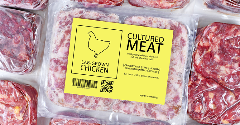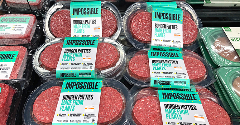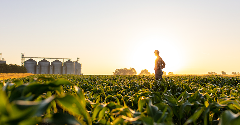News
Lack of oversight in pet food could pose health risk to humans
22 Nov 2023The pet food industry needs stricter health and safety standards, particularly as handling raw pet food can spread foodborne illnesses to humans, including Salmonella and Listeria, according to stakeholders.
Pets today are treated like a member of the family, and more people are choosing to adopt a furry friend. According to 2018 data from the American Veterinary Medical Association, about 40% of American households have a dog and about 25% have a cat.

Owners want the best for their animals, which has led to high demand for better quality pet food and supplies from pet stores and mainstream retailers. However, despite major growth in the industry, there have not been as many improvements in the regulation of pet food.
Without stricter guidelines for manufacturing and labeling, allergens or contaminants in pet food can be harmful to both pets and their humans who come into contact with it.
Voluntary reporting leads to safety gaps
In a recent post on the Food Fix blog, food safety writer Phyllis Entis discussed her new book about the history of pet food safety scandals, and what the industry still fails to get right today. Entis said that government agencies do not do enough to prevent incidents in pet food, and that policies are much more reactive than proactive.
In the US, the Food and Drug Administration that regulates human food and medications also oversees pet food. There is also no pet equivalent to the US Centers for Disease Control and Prevention.
“Right now, there’s absolutely no mandatory reporting. Even if a veterinarian finds salmonella in an animal and ties it to the food, any reporting is completely voluntary,” Entis said. “FDA is totally dependent on voluntary reporting from consumers and veterinarians.”
“The only time CDC would even mention animal illness is if there's an outbreak investigation into human illnesses that came from animal food,” she continued.
 © AdobeStock/nuzza11
© AdobeStock/nuzza11
Some owners are choosing to forego packaged food entirely and prepare their pets’ food at home, but this can be prohibitively expensive and time-consuming for most pet owners. It also is a lot to learn about feeding their animals proper nutrition and choosing the right diet for their pets’ health.
Pet owners need a refresher on cross contamination
The CDC and FDA do have some warnings on their websites about the link between pet food and human illness, particularly raw food. Citing internal data, the FDA said that raw pet food is more likely to be contaminated with disease-causing bacteria than other types of pet food. The agency urges people to clean and disinfect properly when handling raw pet food to avoid infections like salmonella and listeria.
Pet owners may need the reminder. In a 2020 study conducted by Purdue University in the US, researchers found that many pet owners have poor hygiene when it comes to feeding or playing with their cats and dogs, increasing their risk of foodborne illness.
Forty-two percent of survey participants reported that they do not wash their hands after feeding their pets, 70% allow their pets to lick them, and 8% said they occasionally eat pet food and treats themselves.
Pet food can be recalled due to foodborne pathogens just as human food can, but the recalls are less widely reported and followed. The researchers of the study concluded that pet owners “need more education about the safety of pet foods and proper handling of food and pets to prevent contracting an illness.”
Related news

UK consumers could be eating cultivated meat within two years
26 Mar 2025
Cell-cultivated products (CCPs), from chicken nuggets to beefburgers, could be on UK supermarket shelves by 2027 after regulators launched a sandbox to accelerate approvals.
Read more
Protein diversification: A massive missed market?
20 Feb 2025
Germany and the UK could be missing out on the massive market for alternative meats and proteins, with one new coalition calling for an end to the “steak-tofu struggle”.
Read more
Most consumers lack trust in AI, but supplement users are ready to embrace the technology
14 Feb 2025
A survey of UK and US consumers found that most supplement users are willing to let AI make decisions on their behalf, but they also demand greater transparency.
Read more
Indians enjoy first bites of cultivated chicken
13 Feb 2025
The first public tasting of cultivated meat in India has taken place as the country prepares for the first commercial cultivated meat products – potentially as early as the end of this year.
Read more
UK publishes latest food security report
12 Feb 2025
The UK government releases its food security report 2024, detailing five core themes for bolstering and securing the future of the country’s food.
Read more
Leading regulatory updates in Asia in 2025
7 Feb 2025
As we head into 2025, numerous legislators around Asia are suggesting and solidifying legal updates and changes that will impact the food and beverage space.
Read more
Singapore introduces Food Safety and Security Bill
3 Feb 2025
Amid growing food safety concerns and supply chain disruptions, the Singapore Food Agency passes its Food Safety and Security Bill (FSSB) to provide greater clarity, assurance, and credibility.
Read more
Impossible Foods secures reinstatement of EU patent for heme protein
28 Jan 2025
The decision overturns the 2022 revocation of the patent and solidifies legal protection of the innovative ingredient that can be used in plant-based food production.
Read more
US wins GMO corn trade dispute with Mexico
24 Jan 2025
A Mexican decree banning imports of genetically modified (GM) corn for human consumption has been overturned in what has been hailed as a victory for US exports.
Read more
EU Parliament passes stricter packaging rules
20 Jan 2025
The European Parliament voted to approve updates to the packaging and packaging waste regulation, including enforceable re-use targets, limits on certain single-use packaging types, and restrictions on the use of PFAS “forever chemicals”.
Read more